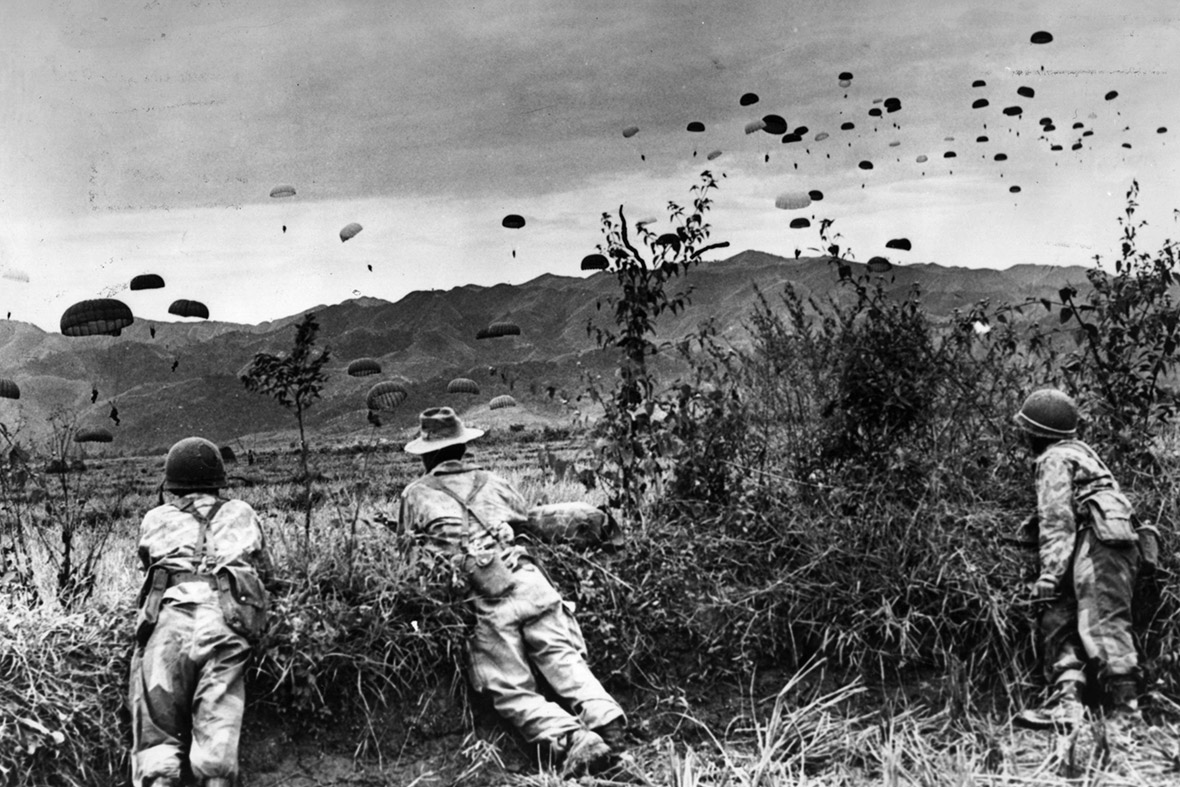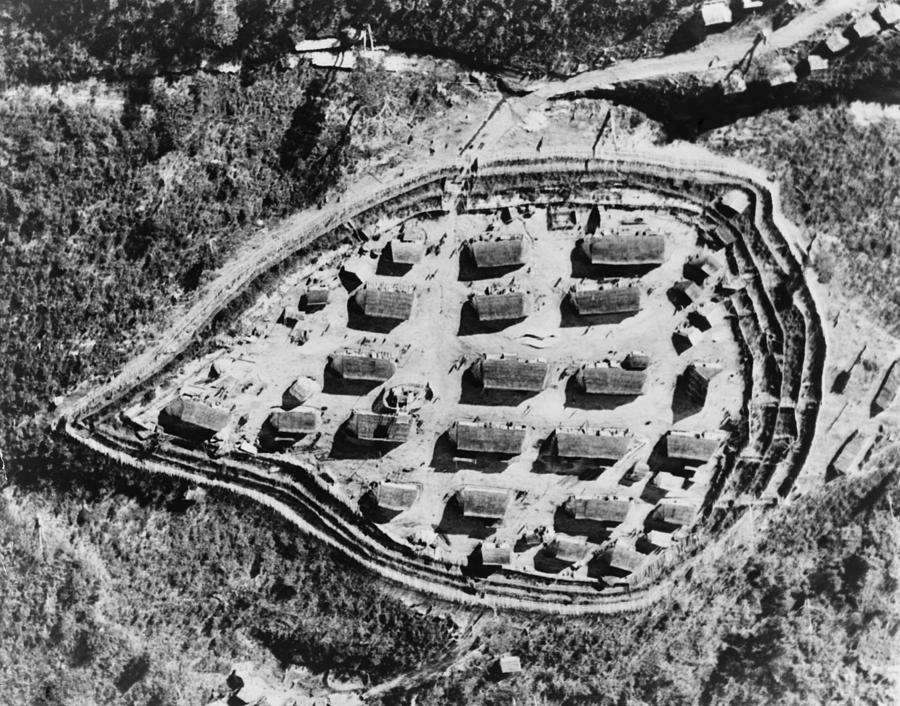 |
| Dien Bien Phu (1954) |
The American involvement in Vietnam, starting during the Second World War in their fight against the Japanese and intensifying after the French defeat at Dien Bien Phu in 1954, was an important Cold War conflict, but the central analytical presence of the Cold War was not the only source of policy in Vietnam:
other analytical narratives such as European colonialism, including themes of Western cultural superiority and racialised perceptions of the Vietnamese, are crucial to understanding key elements of the war such as American modernization theory, best exemplified through programmes such as the
Strategic Hamlet Programme (1962-3) and
Civil Operations and Revolutionary Development Support (CORDS) (1967-73).
 |
| Strategic Hamlet |
Despite Roosevelt's call for the self-determination of peoples across the globe in the Atlantic Charter (1942) and the US collaboration with the Vietminh during the Second World War, at his death in 1945 his successor Truman considered France to be a key ally in the fight against global communism. From its early origins, the conflict in Vietnam was thus one in which colonial and Cold War agendas overlapped, making it part of a series of anticolonial struggles that cannot be understood (and most likely could not have been conceived in the first place) without the presence of the Cold War. The 'fall' of China to communism in 1949 and the Korean War (1950-3) showed the Americans the instability of a region whose resources were crucial for the reconstruction of both Europe and Japan, and where they feared a 'domino principle' that would reinforce communist sentiment across the world without decisive action. As American backing of the French increased, their differences were also made more obvious: France had no interest in any sort of political independence of Vietnam from France, while for the US this political dependence relied more in following the US model and interests rather than necessarily involving becoming part of the US, something that would clash with a longstanding American self-perception as an anti-colonial republic. This clash was one of the reasons that led Eisenhower not to intervene in the French defeat at Dien Bien Phu in 1954, when the Americans were already paying three quarters of the cost of the war.
After the French left, one could argue that the war became a Cold War conflict rather than a colonial war, but the lines in this respect are blurry. Although propping the national elite to head the South of the country after the 'temporal' partition of the country that followed the Geneva Accords (in which the US did not participate), the US continued to provide significant amounts of military training and aid to the South Vietnamese military to fight the National Liberation Front (also known as Vietcong or the communist guerrilla). This followed both previous colonial attempts to impose an externally-decided plan in Vietnam, but also responded to the Cold War logic by which sending American combat troops might lead to a reciprocal action by china and to increased communist sentiment in the countryside. When a series of international setbacks such as the Bay of Pigs failure made Vietnam's significance loom even larger in American foreign policy, the Kennedy administration looked for alternative ways to fight the 'revolution' in Vietnam. The Cold War context and American anti-colonial rhetoric did not impede the
US to borrow civilizing mission ideas from the colonial archive in the form of its modernization theories, as developed by Rostow, Pye, and the 'best and brightest' American academics.
 |
| Rostow |
One of the first programmes where this modernizing mission, a counter-ideology to communism based on liberalism, was made explicit was in the Strategic Hamlet Programme, which borrowed from other colonial settings such as the British in Malaya or the own American experience with concentration camps in the Philippines at the beginning of the century. The programme provided a comprehensive counterinsurgency, and integrated military action with social engineering. The idea was to 'bomb the Vietnamese into the future,' turning around general Curt Le May's previous statement to bomb the Vietnamese 'into the Stone Age.' The Strategic Hamlet Programme thus followed the history of imperial strategies based on 'reconcentrating' and 'developing' a potentially subversive population, fitting with older patterns in which progress went hand in hand with violence and revisiting older ideologies of imperialism and Manifest Destiny to suit the demands of the Cold War.
 |
| Manifest Destiny |
In a similar way, the 'pacification' program of CORDS, intended to win the 'hearts and minds' of the local Vietnamese population, showed the importance of the colonial archive in this 'Cold War' conflict, by accepting human suffering as the unavoidable price of growth and seeing war as an appropriate precondition for modernization. Many Vietnamese communities, indifferent of Cold War dynamics, rejected urbanization and the bourgeois values of city life that accompanied it, which in turn resulted in a rigid response from a US-led administration that wanted to see Vietnam as another Germany or Japan without realising that it looked more like a French Algeria with its guerrilla war, concentration camps and targeting of civilians, and the ever present desire for both natural resources and international prestige, this time coated in a Cold War context in which, in any case, most senior US officials were aware of the American strategic dominance over China and the USSR in terms of economic and military power.





Comentarios
Publicar un comentario